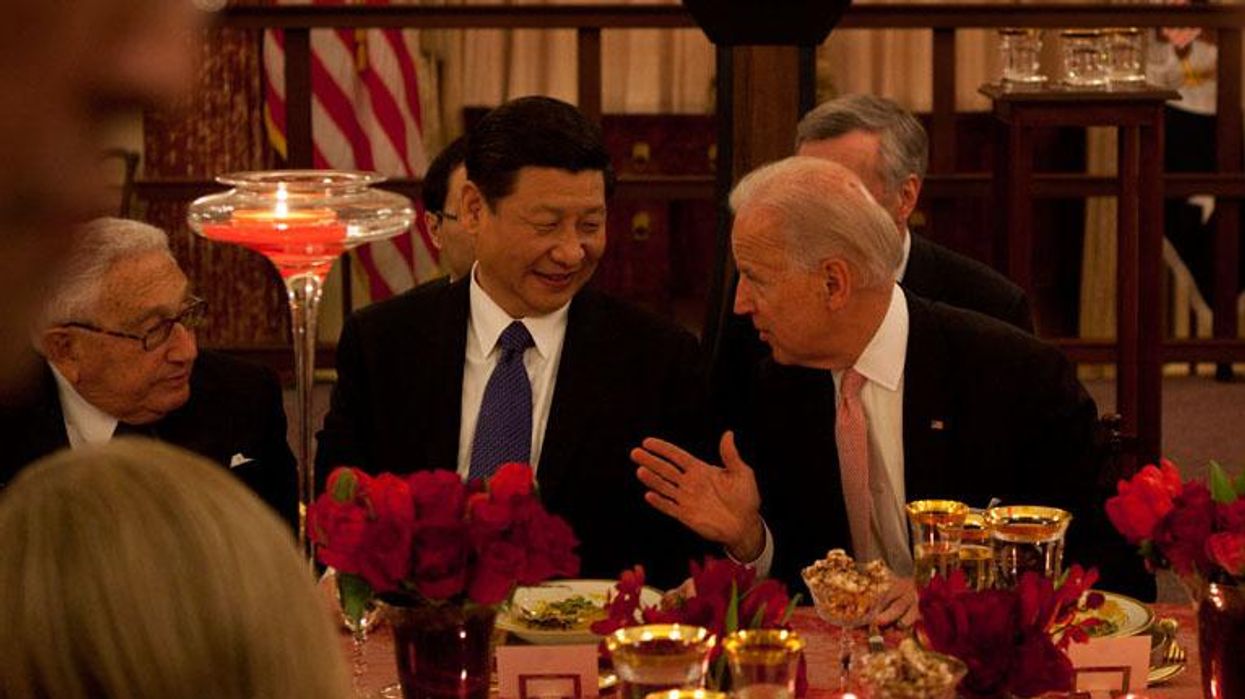During their recent meeting in San Francisco, Chinese President Xi Jinping told President Joe Biden that China plans to "reunify" with Taiwan, and that previous estimated timelines were wrong.
NBC News reported Wednesday that Xi said he would prefer to annex Taiwan — which has had diplomatic relations with the US since 1979 — peacefully, though he didn't rule out taking the island nation by force if necessary. Xi's remarks were made during a meeting that was aimed at easing tensions with China.
"[Xi's] language was no different than what he has always said," a US official familiar with the conversation told NBC. "He is always tough on Taiwan. He’s always had a tough line."
POLL: Should Trump be allowed to hold office again?
Prior to the meeting, China requested that the US issue a statement that it does not support Taiwanese independence and that it supports China's goals of reunification. The Biden administration's State Department did not honor that request. During the summit, Xi emphasized that previous expectations of China seeking to take Taiwan (officially the Republic of China, or ROC) in 2025 or 2027 were wrong, though he didn't elaborate on whether a potential annexation would come sooner or later. CIA Director William Burns said his agency's intelligence determined that Xi was preparing his military to take the island by 2027.
"Now, that does not mean that he’s decided to conduct an invasion in 2027, or any other year, but it’s a reminder of the seriousness of his focus and his ambition," Burns said.
In addition to Biden hoping to prevail in the US presidential election next November, he may have to reckon with the question of Taiwanese independence as the island nation has an upcoming presidential election on January 13. Incumbent President Tsai Ing-Wen (the nation's first female president) is term limited and cannot seek reelection. Current Vice President Lai Ching-te of the ruling Democratic Progressive Party is running for the presidency, and is the most vocal proponent of independence. The other two candidates are also pro-independence, but favor stronger ties with the People's Republic of China (PRC).
Should China seek to annex Taiwan, it may have to do battle against American-made weapons. The Defense Post reports that the US has already sold 29 High Mobility Artillery Rocket Systems (HIMARS) missile launchers to Taiwan, and delivery is expected by 2026 — a year ahead of its previously expected arrival. Xi has been vocal about his goal of annexing Taiwan, though the US officials present at the meeting told NBC that a war with Taiwan could disrupt his goal of doubling the size of China's economy by 2035.
READ MORE: US/China Taiwan war could lead to 'nuclear annihilation': conservative


